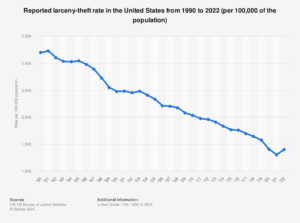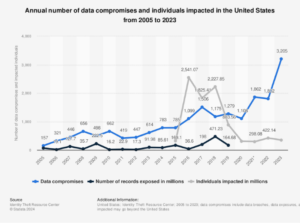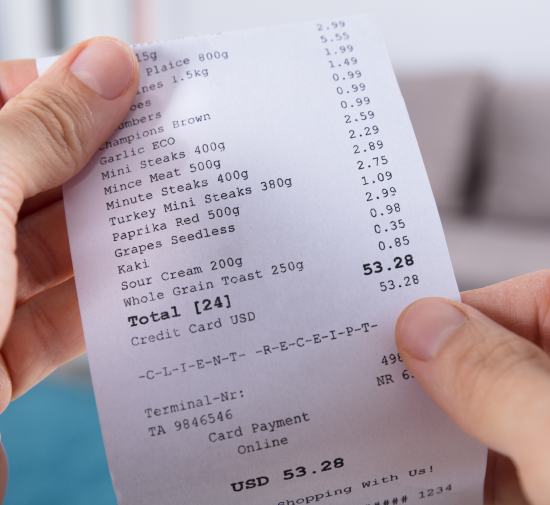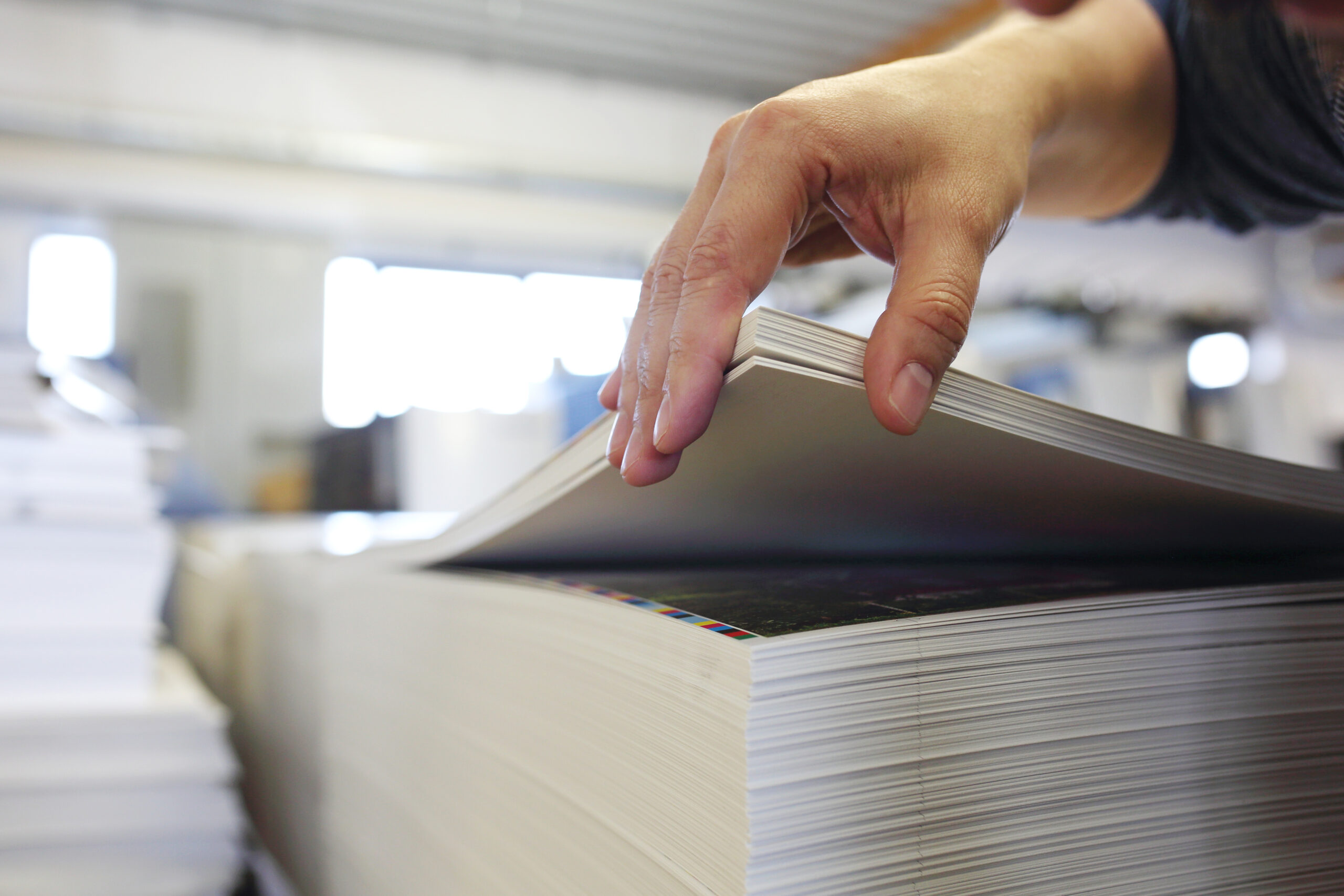In an age dominated by digital transactions and virtual records, paper receipts can seem like relics from the past. Convenience is the name of the game, and what could be more convenient than a digital receipt sent straight to your phone? Recent trends suggest that physical receipts are not only holding their ground but gaining renewed significance as retailers are re-embracing the physical receipt as a tool to combat theft. Here are three reasons why paper receipts have a role in retail.
Making Paper Receipts a Habit Protects You, the Consumer

Recent years have witnessed a notable increase in retail theft. According to the US Bureau of Justice (image below), losses due to shoplifting, employee theft, and other forms of retail crime reached $61.7 billion in 2019 and have only risen since, marking a significant reversal in trend over the past four years.
Physical receipts act as a deterrent to potential thieves, as they serve as tangible evidence of a legitimate transaction. Safeway has been adding receipt-scanning gates to the self-checkout areas of more of its stores.
“The vast majority of shoppers are honest and you can’t ever put technology or any other asset protection solutions in that will drive them away from your store,” says Karl Langhorst, Kroger’s senior director of loss prevention for nearly nine years, “But at the same time, you can’t continue to have losses so great that they potentially drive you out of business.” Beyond preventing theft accusations, physical receipts also contribute to a smoother checkout experience. In situations where discrepancies or questions arise, having a paper receipt readily available can save both the consumer and the retailer valuable time and trouble.
-
Paper Receipts Provide Undeniable Proof and Security.

While the digital era promises convenience, it comes with its own set of risks. Over the past four years, data breaches have also become increasingly common, exposing sensitive information and leaving consumers vulnerable to identity theft. Physical records, in the form of paper receipts, offer a layer of security that digital records often lack.
Since 2019, the number of data leaks and losses in retail has exploded, making companies take action to protect themselves and their customers. In the event of a dispute or fraudulent activity, a physical receipt provides undeniable proof of a transaction. This is particularly crucial when dealing with financial institutions, as they often require tangible evidence to resolve disputes.
-
Paper Receipts don’t Indicate Distrust from Retailers, but Protection for All

The resurgence of physical receipts is not rooted in distrust toward consumers; instead, it represents a proactive measure to protect both retailers and customers. Crime experts say shoplifting and inventory shrink continue to increase annually because there are too few authorized loss prevention personnel to apprehend shoplifters and no dollar-value prosecution thresholds for either internal or external incidents. With fewer people watching, fraud continues to rise, with 69% of survey respondents citing higher in-store fraud and 61.1% indicating e-commerce fraud during the past year. Also, 53.9% said omnichannel fraud incidents were also higher in 2021 relative to 2020. Our own Paper Matters magazine is jam-packed with the latest industry trends and inspirational stories, and the latest issue delves into the multifaceted role that receipts play in enhancing security and fostering trust in transactions.
As the retail landscape continues to evolve, consumers are encouraged to stay informed about the value of paper receipts and the protection they afford. Retailers will respond to the challenges posed by theft and data breaches, so consumers should be aware of how they can make their shopping trips as efficient as possible.
For further insights into the role of paper in modern transactions, we encourage you to explore our recent article. Understanding the value of physical receipts is not just a matter of consumer responsibility; it’s a proactive step towards a more secure and trustworthy retail experience for all. Paper Matters, and in the evolving world of transactions, it might matter more than you think.





